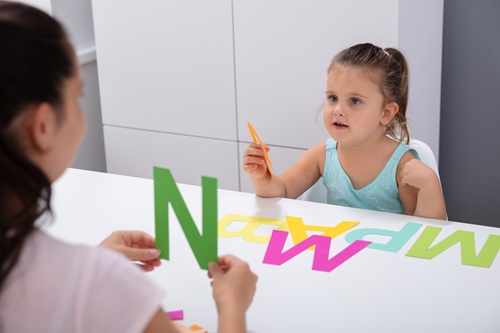Navigating Back-to-School Challenges
Understanding and Supporting Children with Anxiety and Adjustment Disorders
- ADHD
- Separation Anxiety Disorder
- Social Anxiety
- adjustment
- support
- children
- anxiety
- school
- parents
- stress

Many children struggle to adjust to new environments at the start of a new school year. While most adapt naturally within 2 to 3 weeks, some experience extreme anxiety and stress, making it difficult for them even to attend school. Children with attention-deficit hyperactivity disorder (ADHD), separation anxiety disorder, or social anxiety disorder tend to experience back-to-school syndrome more severely.
Professor Kim Eun-joo from the Department of Psychiatry at Gangnam Severance Hospital advises, "It is important to carefully observe the signals children send in the early stages of symptoms." She added, "Sensitive and introverted children may have difficulty expressing negative emotions verbally."
■ADHD…Give Early Notice of Rules and Timetables
Children with ADHD often struggle to follow rules, focus during class, and manage their behavior due to symptoms like inattention, hyperactivity, and impulsivity. This can lead to stress and difficulty adjusting. Additionally, emotional regulation challenges and impulsivity often result in conflicts with peers during group activities. To support these children, it's essential to help them predict the classroom environment. Providing clear and early information about rules and timetables will aid in their preparation for school life.
■Separation Anxiety Disorder: Aligning the Child's Routine with School Time
Children with separation anxiety disorder experience significant stress when separated from their parents, and this anxiety intensifies at the beginning of the school year, sometimes leading to school refusal. Especially in younger elementary school children, the anxiety may not be verbally expressed but instead manifested through physical symptoms such as stomachaches or headaches. At these times, parents must empathize with their child, provide understanding, and offer comfort and reassurance.
■Social Anxiety: Empathizing with the Child's Emotions
Children with severe social anxiety often struggle to make new friends in unfamiliar environments and feel significant pressure during presentations or group activities. In such cases, when parents empathize with the child's feelings by saying, "Mom and Dad also felt very nervous at the beginning of the school year when we were your age," the child can feel reassured, thinking, "I'm not the only one," which helps alleviate their anxiety. Additionally, guiding the child to take deep breaths or do stretching exercises can be helpful when feeling nervous. Encouraging the child to find their stress-relief methods, such as writing, drawing, or exercising, can also help manage anxiety and stress.
Professor Kim Eun-joo said, "If a child continues to struggle with adaptation, it is helpful for parents, the homeroom teacher, and the school counselor to collaborate and provide psychological support." She added, "The most important factor in helping children adapt healthily is offering warm encouragement and support while waiting patiently."
